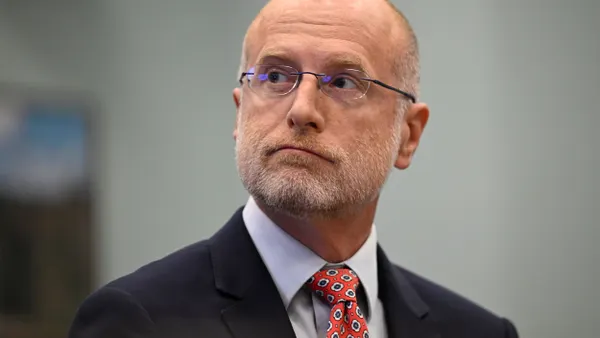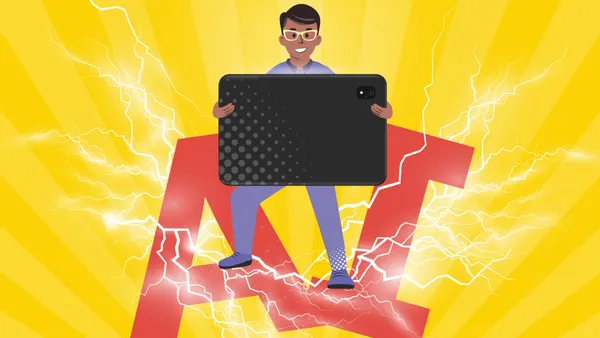Correction: A previous version of this brief stated net neutrality was established in 2015, but its history is much more complicated than that.
Dive Brief:
- The educational impact of the Federal Communication Commission's plan to repeal net neutrality goes beyond just students' ability to stream videos from various providers, eSchool News reports.
- A chief concern is that schools could find themselves in a situation where a cable or wireless provider like Comcast, AT&T or Verizon decide to block an app, throttle speeds for rival services, or provide faster speeds to companies that can afford to pay for them, leaving administrators between a rock and a hard place when it comes to choosing which resources to purchase and implement.
- Administrators are largely hoping for the best no matter the decision, though limited access to content or prioritization of what content is available will remain a top concern amid a repeal.
Dive Insight:
The push to repeal net neutrality, which has had a long and complicated history since the early 2000s, is driven by Republican FCC Chairman Ajit Pai's insistence that the rules have harmed innovation and held back broadband investment and expansion by service providers. Consumer advocates and many major tech companies like Facebook, Google, Amazon and Netflix have expressed support for net neutrality. But it's worth noting that Google (which owns YouTube), Amazon and Netflix also all have skin in the game as content providers, and their bottom line could be harmed if, say, Verizon or Comcast decided to throttle speeds on their content or charge them a premium for higher speeds to the benefit of their own content.
Imagine that sort of scenario with educational content providers, while also considering that an established company like Pearson or McGraw-Hill could likely afford to pay a premium for better content delivery as opposed to a competing startup, and you can see where K-12 administrators have reason for concern.
Of course, net neutrality isn't the only area of concern for schools when it comes to the FCC. The federal E-rate program, which has greatly benefited a number of schools and districts by helping to provide broadband services at a more affordable rate, has also previously received criticism from Pai. Despite telling Congress that he believes the program is "worth fighting for," a report highlighting the program's success was reportedly withdrawn following his nomination to head the agency. Advocates advise that schools and districts shouldn't take the funding for granted, and it still has its proponents on the commission, like Democratic FCC Commissioner Jessica Rosenworcel, a staunch proponent of the program and its potential ability to help close the "homework gap."






 Dive Awards
Dive Awards






